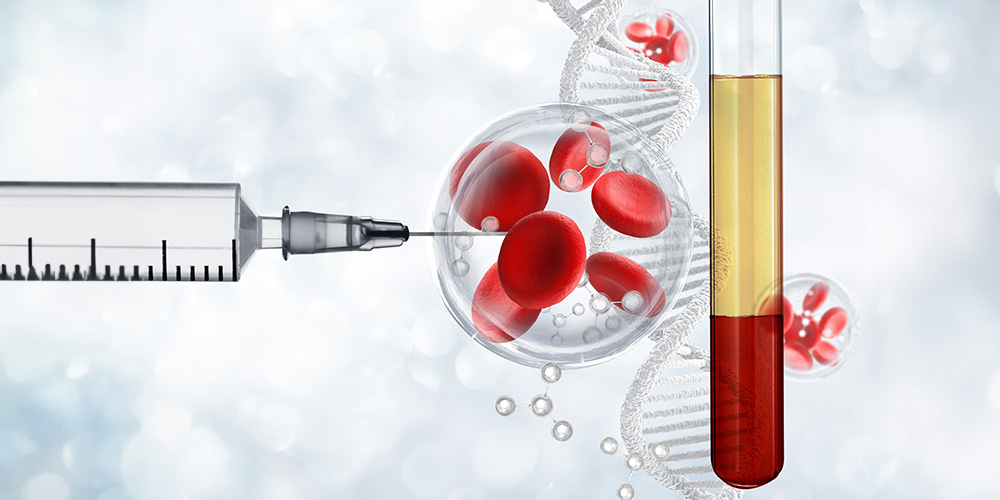Inflammatory bowel disease after a stem cell transplant
A stem cell donation saves a leukemia sufferer’s life. Five years later, the patient develops a chronic inflammatory bowel disease that occurs very rarely following a transplant. Researchers from the University of Basel and University Hospital Basel have studied the case and are calling for more extensive genetic analyses in bone marrow donors.
19 March 2024 | Angelika Jacobs
In many forms of blood cancer, a transplant of blood stem cells is the only chance of a cure. This procedure involves first eliminating the patient’s degenerated blood stem cells and then building up their immune system again with stem cells from a donor.
So that the new immune system doesn’t turn against the recipient’s body, a series of tissue markers must match in the recipient and donor. This criterion is investigated as standard. Now, a research team led by Professors Petr Hrúz from Clarunis (University Digestive Health Care Center Basel) and Mike Recher from the University of Basel and University Hospital Basel has shown that it would also be sensible to carry out a more extensive genetic analysis.
Writing in the Journal of Clinical Immunology, the team describes the case of a man who developed a chronic inflammatory bowel disease (Crohn’s disease) five years after receiving a blood stem cell transplant for leukemia. Genetic analysis revealed that a mutation had been transplanted along with the blood stem cells from the donor. This mutation affected the operation of a factor called TIM-3, a key regulator of the immune system. The donor, on the other hand, was and remains in apparently good health.
Different bodies, different outcomes
“We know of cases like this where the carrier of a mutation develops no symptoms even though the disease manifests in blood relatives with the same mutation, for example,” says immunologist Mike Recher. Why these differences occur is currently the subject of intensive research. For example, the researchers suspect that serious infections or other environmental influences, such as immunocompromising drugs, could trigger a situation whereby a previously unnoticed mutation impacts a person’s health.
The genetic change, which caused no problems in the donor, apparently triggered dysregulation of the immune system in the recipient’s body. This resulted in an autoimmune response and, ultimately, the development of a chronic inflammatory bowel disease.
According to Recher, it’s hard to estimate how many people carry mutations that affect the immune system without knowing. In total, it is estimated that there are up to 4,000 genes that are relevant to the immune system. “Given the significant drop in the cost of DNA sequencing, it would be prudent to analyze blood stem cells for known mutations with regard to the blood and immune systems prior to a transplant,” says Recher. This would mean that, if there were multiple eligible donors in terms of tissue compatibility, it would be possible to select those without a potentially problematic mutation.
Original publication
Adrian Baldrich, Dominic Althaus et al.
Post-transplant inflammatory bowel disease associated with donor-derived TIM-3 Deficiency.
Journal of Clinical Immunology (2024), doi: 10.1007/s10875-024-01667-z



